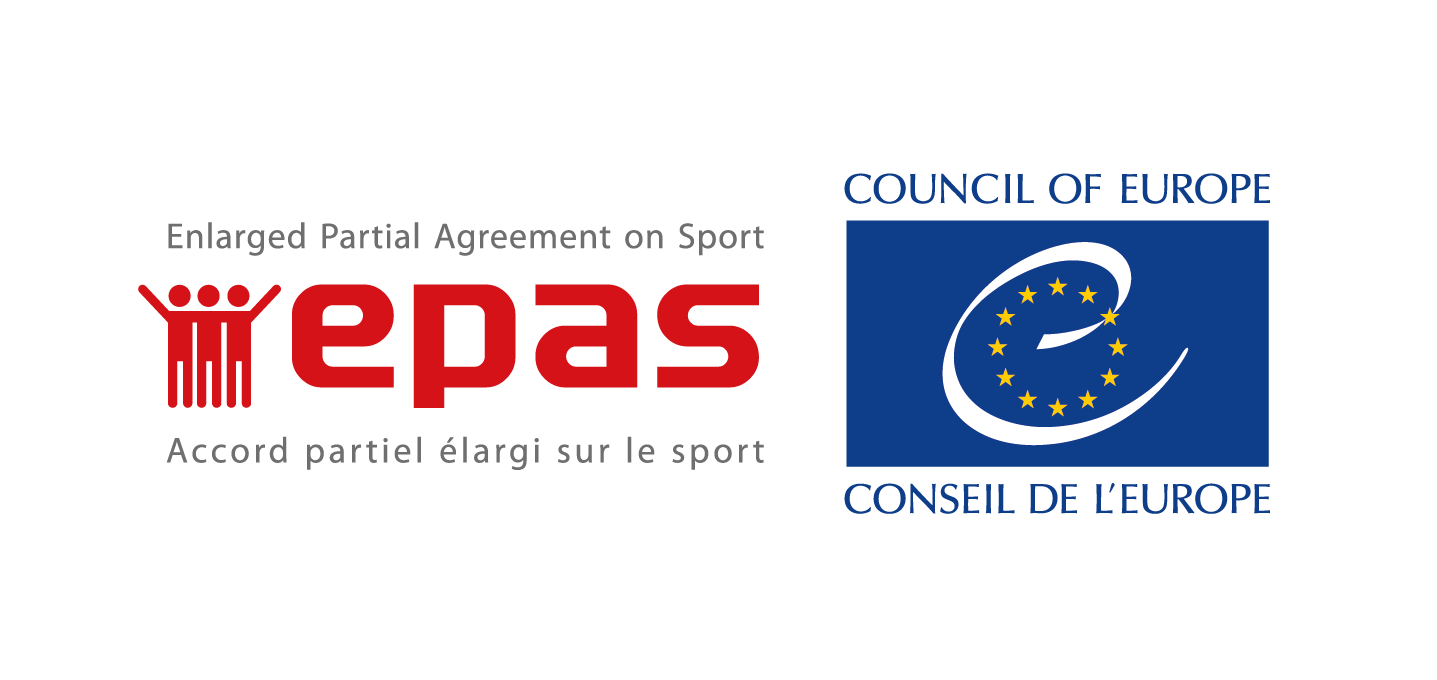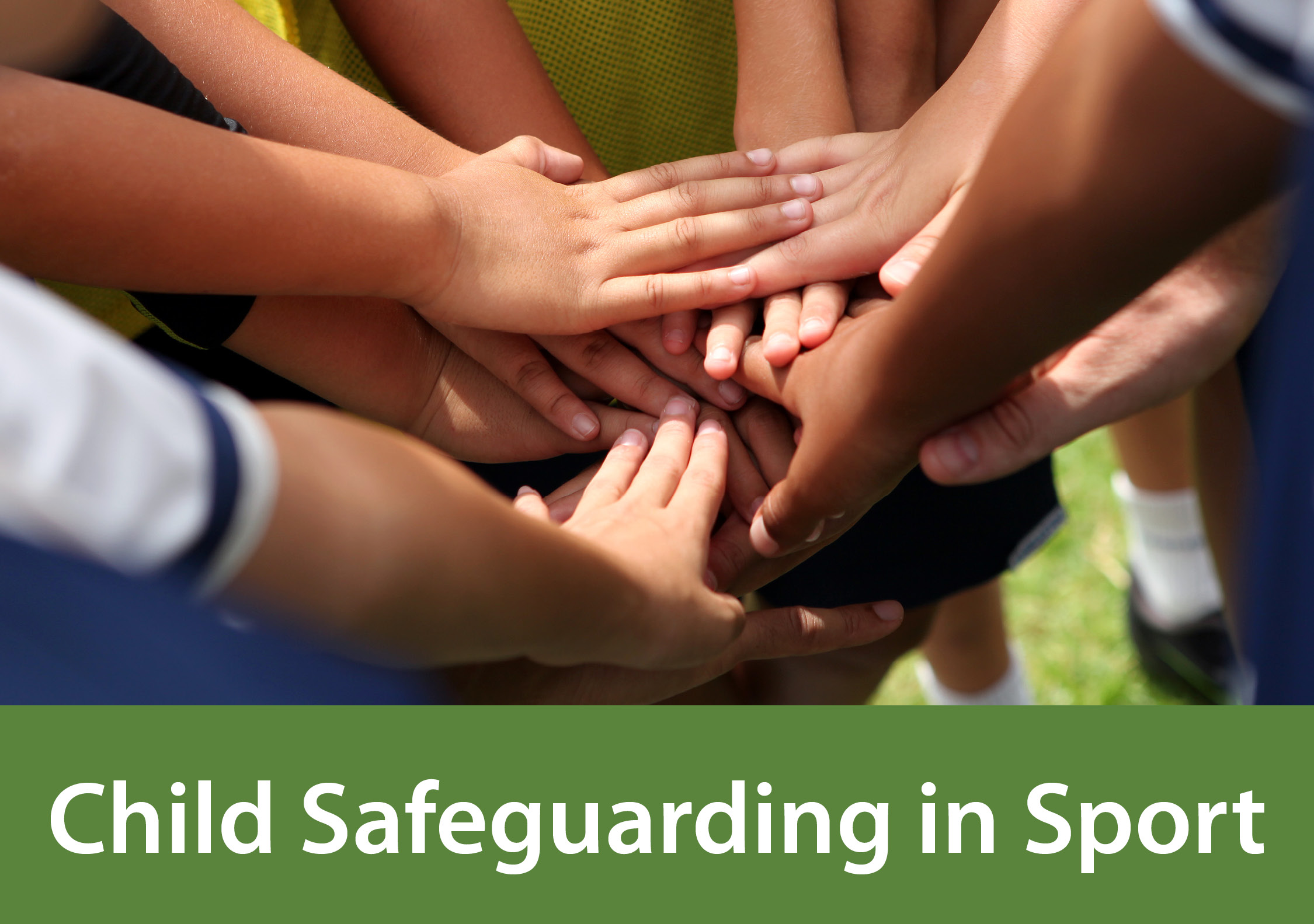Start to Talk
 What is Start to Talk?
What is Start to Talk?
“Start to Talk” is a Council of Europe call for action to public authorities and the sport movement to stop child abuse. By joining this call, governments, sports clubs, associations and federations, as well as athletes and coaches, pledge to take concrete measures to prevent and respond to abuse.
“Start to Talk” is about adults breaking the silence and lending children a voice.
Launch of the "Start to Talk" project in Cyprus – Nicosia, 16-18 September 2024
Training course "Safeguarding children in sport in Cyprus" (16-17 September)
Conference "For better protection of children in sport" (18 September)
About child abuse
It can take a long time for victims of child abuse to disclose what happened to them, if at all. Research shows that one in three victims will never tell anyone. It also shows that sexual violence affects around 1 in 5 children in Europe and that about 80% of abusers are within the child’s circle of trust. The impact of abuse can be devastating and last a lifetime. The good news is that abuse can be prevented.
Abuse happens in sport too
To stop abuse in sport, we must understand the factors that increase children’s vulnerability. Sexual violence thrives when there is tolerance for discrimination, physical violence and inappropriate sexual behavior. Imbalanced power relations, authoritarian leadership and rewards structures create relationships based on fear and dependence and hence vulnerability to the abuse of power. The loss of “natural barriers” because of the physical contact required and the sharing of showers, changing rooms and confined spaces with adults also expose children to several forms of violence. And of course, there is the scandal avoidance by organisations and individuals who prefer to hide the abuse, thus sacrifying the victim and giving the abuser a licence to harm.
It is just as important to understand the reasons why children cannot talk. Fear, shame and guilt are paralysing feelings. Very young children may not recognise the abuse, while teenagers may believe they are in a “relationship”. Love for the sport they practise, peer pressure, taboos around sexuality and admiration for their coach, trap children in a very painful silence. If nothing is done about it, abusers can keep preying on children for years, sometimes resulting in hundreds of victims…
Sport is great for children. It brings joy and develops healthy habits. It boosts self-esteem and creates a sense of belonging. Through sport, children abide by key values and learn important life skills. We must make sure that this is the case for ALL children.
European Day on the Protection of Children against Sexual Exploitation and Sexual Abuse
The Council of Europe Convention on the protection of children against sexual exploitation and sexual abuse (Lanzarote Convention) contains the measures that must be taken to prevent abuse, protect the victims and put an end to the perpetrators’ impunity. The Start to Talk initiative promotes the implementation of this Convention in the sport’s context.
Since 2015, the date of 18 November is commemorated as the European Day on the Protection of Children against Sexual Exploitation and Sexual Abuse. The 2018 edition of this day focused on the specific theme of "the protection of children against sexual abuse in sport”. Various activities were organised around this theme in order to encourage interactions, exchanges, in particular, between children and parents, educators, sports clubs, associations and federations, athletes and coaches, and other professionals.
How did Start to Talk come about?
Start to Talk was launched by the Council of Europe as a follow-up to the two successful Pro Safe Sport projects (in 2014 and 2017) co-funded by the European Union and the Council of Europe, and implemented by the Council of Europe's Enlarged Partial Agreement on Sport (EPAS).
To date, 9 countries have launched a Start to Talk national campaign:
- Spain (5 April 2018)
- The Netherlands (6 November 2018)
- Portugal (22 November 2018)
- Norway (29 November 2018)
- Finland (29 April 2019)
- France (18 November 2019)
- Croatia (13 December 2019)
- Georgia (10 December 2020)
- Greece (14 January 2021)
What are the objectives of Start to Talk?
- Draw attention to the prevalence and impact of child abuse in sport;
- Recall the international standards that must be applied to prevent abuse, protect children and fight impunity;
- Provide guidance on how to concretely implement those standards through:
- the strengthening of legislations, policies and services,
- capacity building, awareness raising and training,
- exchanges of good practices from public authorities and the sport movement;
- Mobilise public authorities, the sport movement and the media triggering action and partnerships at international, national and local levels.
What support do the Council of Europe and EPAS offer?
To stop child abuse in sport, the Council of Europe, through its children’s rights programme and its Enlarged Partial Agreement on Sport (EPAS), offers a platform for co-operation between public authorities, the sport movement, experts, child-protection agencies, the European Union and other international organisations. It also helps to:
- Raise awareness to empower parents and children as well as the public at large through targeted resources (TV spots, videos, communication material etc.);
- Improve legislation and policies;
- Set up strategies and codes of conduct in sport to safeguard children;
- Train sport professionals (coaches, managers and policy makers);
- Disseminate knowledge and expertise by providing access to recent information and findings and to a network of experts.
The materials developed by the Council of Europe present three key advantages:
- They take into account the most advanced standards and recent research;
- They have been developed by leading European experts in co-operation with governments and the sport movement;
- They are designed to be easily adapted to the national context. In addition to translating the texts into the national language(s), partners are encouraged to add country-relevant information such as legislation, existing policies and services, helplines and websites. They can also add their logos to the material.
How can you join the initiative?
EPAS invites the Council of Europe member states to join this effort and undertake three kinds of actions:
Action 1: Launch a Start To Talk campaign at national level
Action 2: Develop or improve safeguarding and protection frameworks
Action 3: Promote training of key stakeholders
To support these actions, EPAS offers a number of concrete services (see "Supporting packages" section below). Using the CoE logo and existing materials incurs no cost for our partners, but member states are expected to identify the necessary funds to implement the actions that they wish to undertake. EPAS is also launching a call for voluntary contributions to allow the Council of Europe to financially support some activities (such as the translation of material, the dubbing of videos or the provision of expertise) when funds are not available at national level.
To express your interest in joining Start to Talk, and to have a personalised consultation on the actions, please read the section "Actions proposed" and complete the relevant online form.
EPAS invites Council of Europe member states to join this effort and undertake three kinds of actions. The three actions below each contain a set number of "supporting packages" which, when combined, offer states a dynamic set of tools to ensure the action develops. Detailed information about each individual supporting package can also be found below.
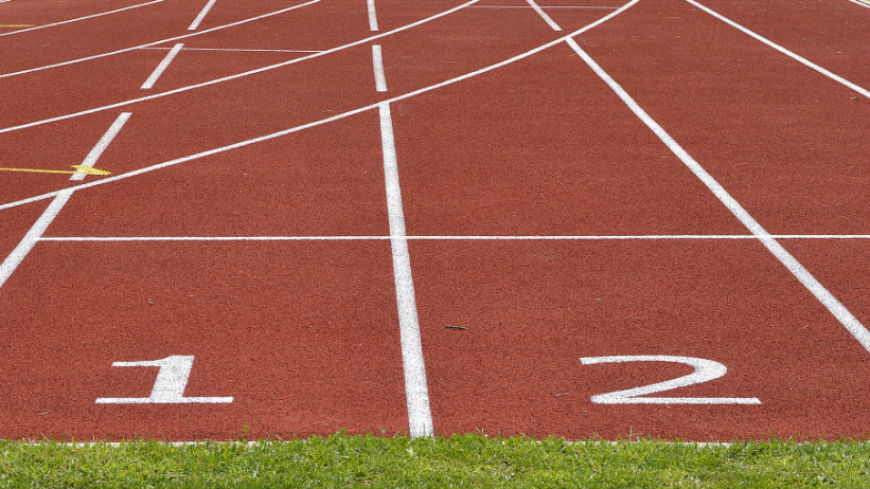
Action 1 (A1): Launch a Start to Talk campaign at national level
This action (A1) consists of the following support packages:
Human resources / advice / direct support
- Advice on process, format, stakeholders and key milestones
- Expertise to identify gaps, actions needed, and key campaign messages
- Identifying facilitators and/or trainers
- Identifying leading experts for presentations at events
Tools
- Start to Talk video clip
- Start to Talk action page
- Printed materials (postcard, brochure, etc.)
- Start to Talk logo
Events
- Advice on process, format, stakeholders and key milestones
- European Day on the protection of children against sexual exploitation and sexual abuse (18 November)
To express your interest in this particular action please fill in the online form.
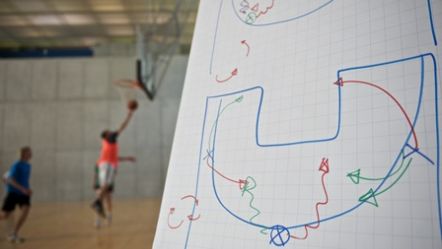
Action 2 (A2): Develop or improve safeguarding and protection frameworks
This action (A2) consists of the following support packages:
Human resources / advice / direct support
- Advice on process, format, stakeholders and key milestones
- Expertise to identify gaps, actions needed, and key campaign messages
- Identifying facilitators and/or trainers
- Identifying leading experts for presentations at events
Tools
- Start to Talk video clip
- Printed materials (postcard, brochure, etc.)
- Self-assessment tool to identify potential gaps and measures to take
- Start to Talk logo
Information
- Existing standards, policies, programmes and procedures
- Examples of good practice on safe sport
- Presentations by experts on safe sport matters
To express your interest in this particular action, please fill in the online form.
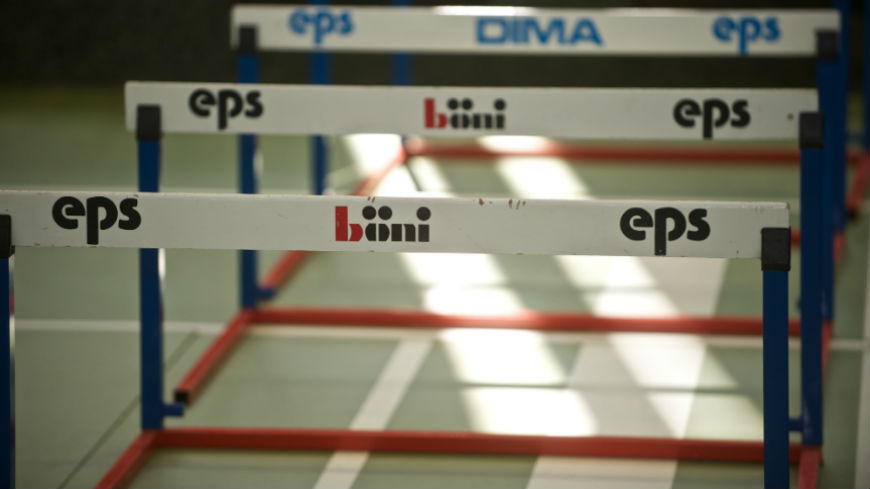
Action 3 (A3): Promote training of key stakeholders
This action (A3) consists of the following support packages:
Human resources / advice / direct support
- Advice on process, format, stakeholders and key milestones
- Expertise to identify gaps, actions needed, and key campaign messages
- Identifying facilitators and/or trainers
- Identifying leading experts for presentations at events
Tools
- Start to Talk video clip
- Start to Talk action page
- Printed materials (postcard, brochure, etc.)
- Training Kit
- Self-assessment tool to identify potential gaps and measures to take
- Start to Talk logo
- Template for a workshop/training session on safe sport
Information
- Existing standards, policies, programmes and procedures
- Examples of good practice on safe sport
- Presentations by experts on safe sport matters
To express your interest in this particular action, please fill in the online form.
Advice on process, format, stakeholders and key milestones
What is it?
In an individual consultation, depending on your specific needs, the Secretariat can provide advice on process, format, stakeholders and key milestones when organising events on safe sport matters.
How can it be used?
It can be used for actions A1, A2 and A3.
Expertise to identify gaps, action needed and key campaign messages
What is it?
In an individual consultation, depending on your specific needs, the Secretariat can identify gaps, action needed and key campaign messages.
How can it be used?
It can be used for actions A1, A2 and A3.
Identification of facilitators/trainers
What is it?
The Secretariat has worked together with, and can recommend, highly qualified and experienced trainers and facilitators in the field of safe sport, and can put you in touch with them, depending on your requirements.
How can it be used?
It can be used for actions A1, A2 and A3.
Identification of leading experts for presentations at events
What is it?
The Secretariat has set up a pool of experts on safe sports in the following fields:
- child protection policies;
- policy makers;
- practitioners;
- researchers/ academics;
- victim support specialists.
More information on the pool of experts can be found here.
How can it be used?
If you are interested, the Secretariat can put you in touch with members of this pool of experts.
It can be used for actions A1, A2 and A3.
Start to Talk video clip/TV spot
The full-length video clip and the shorter TV spot are available in the several languages.
How can the clips be used?
There are no restrictions on using the video clips. They can be shown at events, on the internet, cinema and on TV.
My language version/subtitles are not available: what can be done?
The intention is to have the Start to Talk video clips available in as many languages as possible.
Interested countries/parties can choose to dub the film into a language other than English, and/or to subtitle the film using an agreed script. The precise text of the translation to be used in voicing and subtitles will require prior approval by the EPAS Secretariat.
Please contact the Secretariat to check if the desired language version is already in production.
Costs related to producing the video clip
The cost of dubbing the STT video clip into another language is estimated at around 3.000 - 5.000 EUR.
The cost of providing embedded subtitles within the STT video clip is estimated at around 300 EUR per language.
Start to Talk action page
What is it?
The Council of Europe’s Human Rights Channel features a Start to Talk action page, which raises awareness and provides information and links to resources aimed at stopping child abuse in sport.
How can it be used?
The Start to Talk action page can be easily accessed via the Human Rights Channel of the Council of Europe and can be shown at events.
It can be used for actions A1 and A3.
The Start to Talk action page is not available in my language: what can be done?
The intention is to have the Start to Talk action page available in as many language versions as possible.
The costs of translating the Start to Talk action page is estimated at around 200 EUR. Otherwise, the Secretariat can provide you with the English language version of the action page, and you can translate it into your language. The Council of Europe would set up the action page in your language, free of charge.
Printed materials (postcard, brochure etc.)
What is it?
In the framework of the Start to Talk initiative, various communication materials such as postcards and brochures were produced to raise awareness on how to prevent child abuse and harassment in sport.
How can they be used?
The communication materials can be used as a complementary tool to raise awareness on child abuse and harassment in sport.
They can be used for actions A1, A2 and A3.
Training kit
What is it?
The training kit is a set of six factsheets which is currently available in English, French and Portuguese. The training kit contains important information on facts and figures, legal and regulatory frameworks – amongst other things – and includes a national section which can provide country-specific information.
The country-specific information and the translation of the training kit into other languages have to be provided by the interested country/stakeholder. The production of the training kit must follow the graphic charter of the Council of Europe and prior authorisation must be sought from the Secretariat before the interested country/stakeholder initiates any work on translating or producing the kit.
How can it be used?
The training kit can be used as a tool for the proposed training sessions on safe sport – Action 3. It can be published with the country-specific information and broadly disseminated among stakeholders.
The training kit is not available in my language: what can be done?
The intention is to have as many language versions of the training kit as possible. The cost of translating the training kit is estimated at around 2.000 EUR.
Self-assessment tool to identify potential gaps and measures to take
What is it?
EPAS developed a self-assessment tool providing stakeholders with the opportunity to assess their own organisational capacity to provide a safe and healthy sport environment for young athletes.
How can it be used?
The self-assessment tool can be used for actions A2 and A3. It is only available in English.
Start to Talk logo
What is it?
The Start to Talk initiative has its own logo. Stakeholders may use the logo after obtaining approval from the Secretariat.
How can it be used?
Should you be interested in using the Start to Talk logo, please apply for approval by sending an e-mail to the Secretariat giving:
- a short statement of identity (nature of the organisation and its objectives);
- an explanation of how and where the logo will be used.
It can be used for actions A1, A2 and A3.
Template for a workshop/training session on safe sport
What is it?
In the framework of the Pro Safe Sport project, a workshop template on safe sport was produced which can help stakeholders to organise their national/regional/local country workshop on safe sport.
How can it be used?
Stakeholders can use the Pro Safe Sport workshop template as a source of inspiration and adapt it to their own special needs.
It can be used for action A3.
Existing standards, policies, programmes and procedures
What is it?
In the framework of the Child Safeguarding in Sport (CSiS) project, a resource centre was set up providing useful information on the prevention of abuse against children in sport, including information on standards and normative frameworks to prevent violence against children in sport.
How can it be used?
The examples of existing standards, policies, programmes and procedures shall serve as an inspiration for your activities. The tool is only available in English.
It can be used for actions A2 and A3.
Examples of good practices on safe sport
What is it?
There is a wealth of information available in the Child Safeguarding in Sport (CSiS) resource centre including good practice examples in the following areas:
- developing and implementing a child protection strategy (overarching theme);
- developing educational programmes;
- awareness-raising initiatives;
- codes of conduct and codes of ethics;
- minimizing risks;
- support systems and case management.
How can it be used?
The good practice examples shall serve as an inspiration for your activities. The resource centre including the examples of good practices can be easily accessed on the internet. The tool is only available in English.
It can be used for actions A2 and A3.
Presentations of experts on safe sport matters
What are they?
In the course of the projects, many presentations on safe sports and the well-being of athletes were given in the following fields:
- physical well-being;
- psychological well-being including harassment and abuse,
- social well-being;
- fairplay;
- governance;
- general themes.
These presentations are made available for information purposes.
How can it be used?
The presentations shall serve as an inspiration for your activities and can be easily accessed on the internet.
They can be used for actions A2 and A3.
European Day on the protection of children against sexual exploitation and sexual abuse on 18 November
What is it?
Since 2015, the date of 18 November is commemorated as the European Day on the Protection of Children against Sexual Exploitation and Sexual Abuse. The 2018 edition of this day focused on the specific theme of "the protection of children against sexual abuse in sport”. Various activities around this theme were organised in order to encourage interactions, exchanges, in particular, between children and parents, educators, sports clubs, associations and federations, athletes and coaches, and other professionals.
How can it be used?
If you are interested in organising an event in relation to the Protection of Children against Sexual Exploitation and Sexual Abuse, we can provide you with support as described in the supporting packages.



